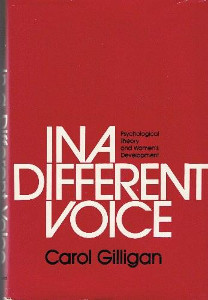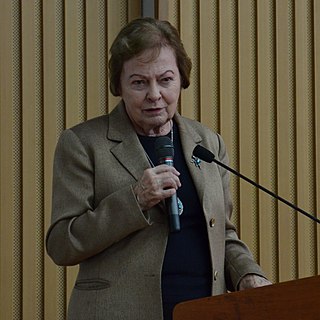Contrasting theories
As contrasted to theories of ethics that derive from dispute resolution, or the meta-ethics as defined in Western moral philosophy, ethical traditions emphasizing abstract moral codes expressed in some language with some judgmental hierarchy, ethical relationship theories tend to emphasize human development. Thus they focus on unequal power and such matters as sexual honesty, marital commitment, child-raising, and responsibility to conduct such essential body and care matters as toilet training, weaning, forming attitudes to sexuality and to masturbation. Failures to consider consequences of teachings or examples set in these matters is disastrous, as it leads to failures of the most fundamental relationship any person has: to their own body, shame in it, pride in it, care for it, etc. Care and concern for other's bodies follows.
No ethical tradition has failed to prescribe at least some rules for the conduct of such relationships.
Carol Gilligan famously championed the role of relationships as central to moral reasoning, and superior as a basis for understanding human choices than any prior linguistic or meta-ethical concept. This perspective is now commonly called the ethics of care.
Lawrence Kohlberg, famous for work on moral development as a part of human development, eventually joined Gilligan in starting a descriptive ethics of relationship conduct in what they called the ethical community or just community. This was in effect a community of practice which, at least in Kohlberg's conception, had a core epistemic community of those trusted to define and resolve the disputes between members, and to facilitate the growth of moral development, not only in children, but in prisoners and others.
Donald R. C. Reed, whose book Following Kohlberg: Liberalism and the Practice of Democratic Community (1998) outlined the extension of these principles to deliberative democracy, claims that "During the four years following publication of Gilligan's In a Different Voice (1982), Kohlberg and Gilligan both revised their accounts of moral development so that they converged far more than is commonly recognized." Reed argued for "extending this convergence to include the understanding developed in the just community projects."
There is also potential for application of these methods to ethical tradition. Kohlberg's student Burton Visotzky, for instance, in The Genesis of Ethics, 1997, applied the relationship approach to Ethics in the Bible. The book focuses on the choices and interactions of major characters in the Book of Genesis . Visotzky exploits much of the Talmudic, midrash and magisterium, demonstrating that these Jewish theological traditions too had often focused on the ethical relationship, not only between Man and God, but between others in one's family, tribe or community.
Mohandas Gandhi, Confucius, Menno Simons and Baruch Spinoza are examples of figures in moral philosophy and political philosophy who focused first and foremost on the ethical choices made in the actual framing and encounter of moral interventions. Greens and New Confucians are two examples of modern movements that are derived in part from relational traditions.
Applied ethics refers to the practical aspect of moral considerations. It is ethics with respect to real-world actions and their moral considerations in the areas of private and public life, the professions, health, technology, law, and leadership. For example, the bioethics community is concerned with identifying the correct approach to moral issues in the life sciences, such as euthanasia, the allocation of scarce health resources, or the use of human embryos in research. Environmental ethics is concerned with ecological issues such as the responsibility of government and corporations to clean up pollution. Business ethics includes questions regarding the duties or duty of 'whistleblowers' to the general public or their loyalty to their employers.

Ethics or moral philosophy is a branch of philosophy that "involves systematizing, defending, and recommending concepts of right and wrong behavior". The field of ethics, along with aesthetics, concerns matters of value; these fields comprise the branch of philosophy called axiology.
Normative ethics is the study of ethical behaviour and is the branch of philosophical ethics that investigates the questions that arise regarding how one ought to act, in a moral sense.

Morality is the differentiation of intentions, decisions and actions between those that are distinguished as proper (right) and those that are improper (wrong). Morality can be a body of standards or principles derived from a code of conduct from a particular philosophy, religion or culture, or it can derive from a standard that a person believes should be universal. Morality may also be specifically synonymous with "goodness" or "rightness".
Lawrence Kohlberg was an American psychologist best known for his theory of stages of moral development.
This Index of ethics articles puts articles relevant to well-known ethical debates and decisions in one place - including practical problems long known in philosophy, and the more abstract subjects in law, politics, and some professions and sciences. It lists also those core concepts essential to understanding ethics as applied in various religions, some movements derived from religions, and religions discussed as if they were a theory of ethics making no special claim to divine status.

Virtue ethics is an approach to ethics that treats the concept of moral virtue as central. Virtue ethics is usually contrasted with two other major approaches in ethics, consequentialism and deontology, which make the goodness of outcomes of an action (consequentialism) and the concept of moral duty (deontology) central. While virtue ethics does not necessarily deny the importance of goodness of states of affairs or moral duties to ethics, it emphasizes moral virtue, and sometimes other concepts, like eudaimonia, to an extent that other ethical dispositions do not.
Situated ethics, often confused with situational ethics, is a view of applied ethics in which abstract standards from a culture or theory are considered to be far less important than the ongoing processes in which one is personally and physically involved, e.g. climate, ecosystem, etc. It is one of several theories of ethics within the philosophy of action.

Carol Gilligan is an American feminist, ethicist, and psychologist, best known for her work on ethical community and ethical relationships.
Descriptive ethics, also known as comparative ethics, is the study of people's beliefs about morality. It contrasts with prescriptive or normative ethics, which is the study of ethical theories that prescribe how people ought to act, and with meta-ethics, which is the study of what ethical terms and theories actually refer to. The following examples of questions that might be considered in each field illustrate the differences between the fields:
Moral psychology is a field of study in both philosophy and psychology. Historically, the term "moral psychology" was used relatively narrowly to refer to the study of moral development. Moral psychology eventually came to refer more broadly to various topics at the intersection of ethics, psychology, and philosophy of mind. Some of the main topics of the field are moral judgment, moral reasoning, moral sensitivity, moral responsibility, moral motivation, moral identity, moral action, moral development, moral diversity, moral character, altruism, psychological egoism, moral luck, moral forecasting, moral emotion, affective forecasting, and moral disagreement.
Lawrence Kohlberg's stages of moral development constitute an adaptation of a psychological theory originally conceived by the Swiss psychologist Jean Piaget. Kohlberg began work on this topic as a psychology graduate student at the University of Chicago in 1958 and expanded upon the theory throughout his life.
The ethics of care is a normative ethical theory that holds that moral action centers on interpersonal relationships and care or benevolence as a virtue. EoC is one of a cluster of normative ethical theories that were developed by some feminists and environmentalists since the 1980s. While consequentialist and deontological ethical theories emphasize generalizable standards and impartiality, ethics of care emphasize the importance of response to the individual. The distinction between the general and the individual is reflected in their different moral questions: "what is just?" versus "how to respond?". Carol Gilligan, who is considered the originator of the ethics of care, criticized the application of generalized standards as "morally problematic, since it breeds moral blindness or indifference".
Feminist philosophy is an approach to philosophy from a feminist perspective and also the employment of philosophical methods to feminist topics and questions. Feminist philosophy involves both reinterpreting philosophical texts and methods in order to supplement the feminist movement and attempts to criticise or re-evaluate the ideas of traditional philosophy from within a feminist framework.

In a Different Voice: Psychological Theory and Women's Development is a book on gender studies by American professor Carol Gilligan, published in 1982, which Harvard University Press calls "the little book that started a revolution".

Nel Noddings was an American feminist, educator, and philosopher best known for her work in philosophy of education, educational theory, and ethics of care.
Ethics or moral philosophy is a branch of philosophy that involves systematizing, defending, and recommending concepts of right and wrong conduct. The field of ethics, along with aesthetics, concern matters of value, and thus comprise the branch of philosophy called axiology.
Feminist ethics is an approach to ethics that builds on the belief that traditionally ethical theorizing has undervalued and/or underappreciated women's moral experience, which is largely male-dominated, and it therefore chooses to reimagine ethics through a holistic feminist approach to transform it.
Moral development focuses on the emergence, change, and understanding of morality from infancy through adulthood. Morality develops across a life span in a variety of ways and is influenced by an individual's experiences and behavior when faced with moral issues through different periods of physical and cognitive development. Morality concerns an individual's reforming sense of what is right and wrong; it is for this reason that young children have different moral judgment and character than that of a grown adult. Morality in itself is often a synonym for "rightness" or "goodness." It also refers to a specific code of conduct that is derived from one's culture, religion, or personal philosophy that guides one's actions, behaviors, and thoughts.
Don Collins Reed is an emeritus professor of ethics and history of philosophy at Wittenberg University.





